5 Best Business Analyst Books -a Must-Read Basics
Discover essential reads for Business Analysts! From mastering user stories to understanding UML diagrams, these books cover it all. Whether prepping for interviews or seeking practical insights, find your next must-read here.

When starting your journey in business analysis or seeking to organize your knowledge, turning to business analyst books is crucial. Despite the wealth of courses, experience, articles, and webinars available, books are what truly "glue" the building blocks of knowledge together.
Specialized books serve as both a solid foundation and a complement to experience or courses and homework during mentorship sessions. They complement what the mentor shares in lectures or through experiential examples.
In this article, I've compiled 5 best books for business analysts that impressed me with their content and presentation. Each of these business analysis books provides assistance in addressing specific work tasks such as writing user stories, creating diagrams, and conducting interviews with users and clients.
I believe they will be beneficial for both novice business analysts and those with up to 3 years of experience. Nonetheless, some of them are useful even for seasoned professionals who used to work in one company/one type of projects and now need to move on and prepare for the interview.
For beginners, they help establish a foundation upon which to build, while for experienced business analysts, they help fill gaps and organize knowledge.
1 "Software Requirements (Developer Best Practices) 3rd Edition" by Karl Wiegers, Joy Beatty
The top pick on my list of the business analyst books has gotta be Karl Wiegers and Joy Beatty's "Software Requirements. 3rd Edition." It's packed with real-life situations every Business Analyst faces, showing you what to do and what not to do with examples.
This book is like the holy grail, the go-to foundation you can't do without. I'd call it "Business Analysis for Dummies" or maybe "The BA Bible" (yeah, BABOK's handy, but it's not exactly lively, so it can't take on that Bible role), in other words, this is the best book for business analyst for beginner, and growing specialist (middle-senior-).
It is very important to me that this book also shifts your mindset - every business analyst shall focus on real users goals and pains, not just note features users ask for - sometimes those solutions will not really address the real problems. This is a very hard yet essential thing to master.
Plus, the second author often gets overlooked, so you might've heard something like "Have you read Wiegers?" or "Need a book recommendation? Wiegers, obviously!" 😄 (by the way, I don't know why there are 2 authors, but only one is mentioned usually, probably to simplify)
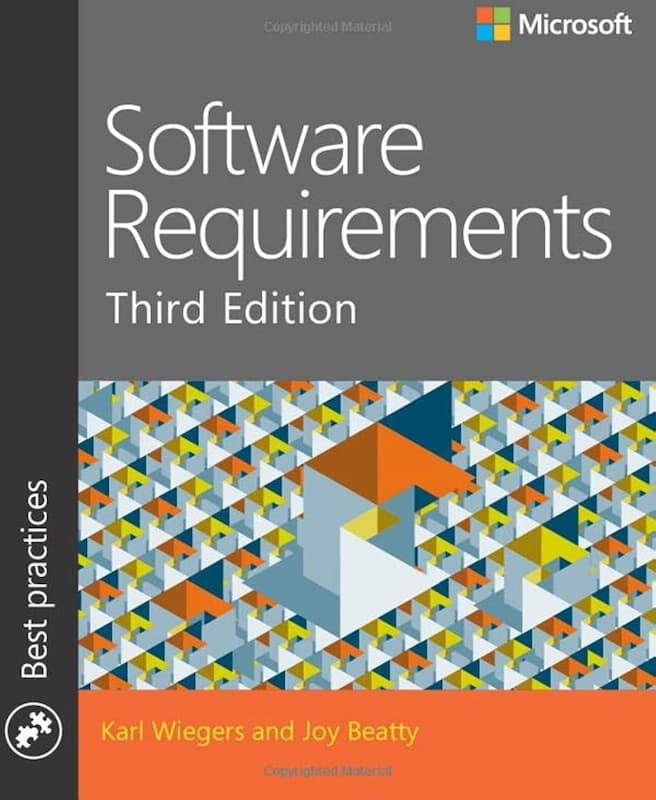
I read it both when I was getting into business analysis and periodically throughout my career – sometimes to brush up on knowledge and other times to find specific things for work tasks or to suggest a specific part for my mentees.
For instance, Wiegers nails down how to write non-functional requirements, what types there are, and how they impact each other, and this is often asked in BA interviews, for which I prepared my mentees.
Honestly, the authors cover everything brilliantly. So, you can use this book as a BA's desk reference for a while until BABOK takes over.
2 "User Stories Applied: For Agile Software Development" by Mike Cohn
Once you've got the basics down and start getting into the thick of things, one of the important tasks will be writing user stories. Mike Cohn's book "User Stories Applied: For Agile Software Development" does a great job of breaking down why user stories are a powerful tool and how to use them effectively.
It seems to me that Mike unfairly overlooked the "so that..." part, but otherwise, the book is definitely worth reading thoroughly.
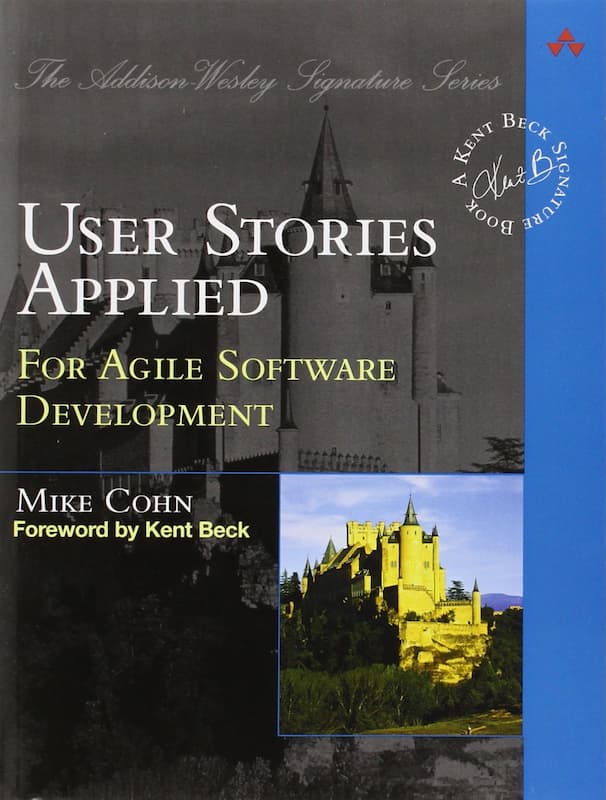
Hailed by the agile community, "User Stories Applied" is one of the business analyst books that offers a time-saving approach to requirements gathering, eliminating rework and leading to better software.
This one of the best books for business analysts by Mike Cohn equips you with a comprehensive guide to crafting effective user stories, the foundation for building user-centric software.
Key takeaways:
- Craft compelling user stories: Learn what makes a great story and how to avoid pitfalls.
- Gather stories efficiently: Discover practical methods even without direct user interaction.
- Manage your stories effectively: Organize, prioritize, and leverage them for planning, management, and testing.
- Master user roles: Understand user similarities and differences.
- Gather stories through various channels: Utilize interviews, questionnaires, observations, and workshops.
- Collaborate with stakeholders: Work effectively with managers, trainers, and salespeople.
- Write user stories for acceptance testing: Ensure functionality meets user expectations.
- Prioritize, schedule, and estimate costs: Leverage stories for efficient project management.
- Practice and reinforce your learning: Apply your knowledge with end-of-chapter exercises.
3 "UML Distilled: A Brief Guide to the Standard Object Modeling Language 3rd Edition" by Martin Fowler
User stories is a great tool. However, there are plenty of other techniques to help analyze and present information to both clients and teams in a digestible manner. Besides, UML diagrams can accomplish a user story perfectly.
I really appreciate diagrams because they help prompt useful questions during their creation and because both teams and clients love them - after all, it's easier to understand, for example, the sequence of actions in a diagram than to delve into plain text. So, UML diagrams for business analyst are powerful tools!
The book "UML Basics: A Concise Guide to the Standard Object Modeling Language" by Martin Fowler will help you understand the different types of UML diagrams and how to draw them correctly.
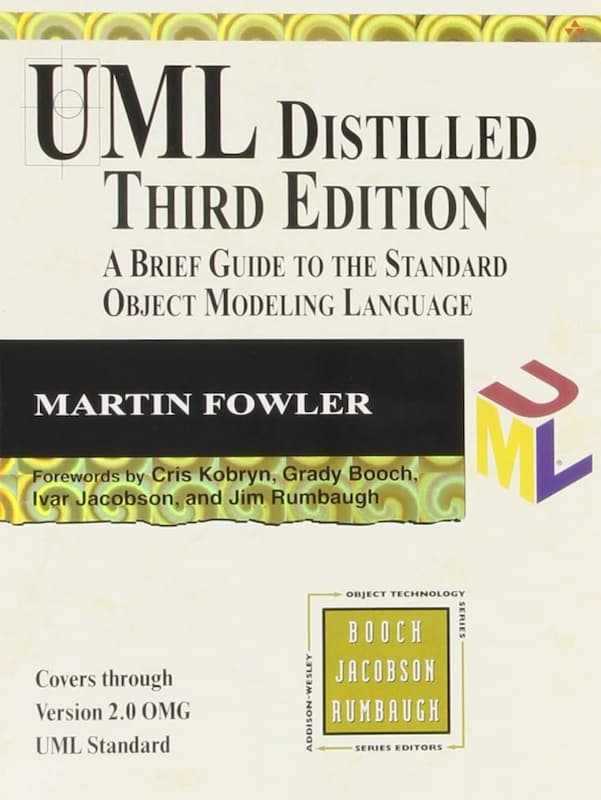
This concise guide by Martin Fowler equips you with the essential knowledge of UML 2.0 and prior versions.
Whether you're a beginner seeking a quick introduction or a seasoned developer needing a handy reference, this book delivers:
- Key elements of Class diagrams: Understand their purpose and notation.
- Explore both official and preferred unofficial approaches for adding control flow to sequence diagrams .
This comprehensive guide covers all major UML diagram types, including those that shall be very familiar to BAs:
- Class;
- Sequence;
- Data flow;
- Use case;
- State machine;
- Activity.
Clear examples and concise explanations in this book make understanding UML a breeze.
4 "The Mom Test" by Rob Fitzpatrick
Interviewing is one of the main tools of an analyst. Improperly formulated questions can ruin a future decision. Rob Fitzpatrick's book "The Mom Test" will tell you which questions to ask and which ones not to, and why.
For example, why 'do you like my product' and 'will you use it' - this is a failure. The book will help structure conversations with clients or users so that you get the maximum useful information, sometimes even that you didn't suspect.
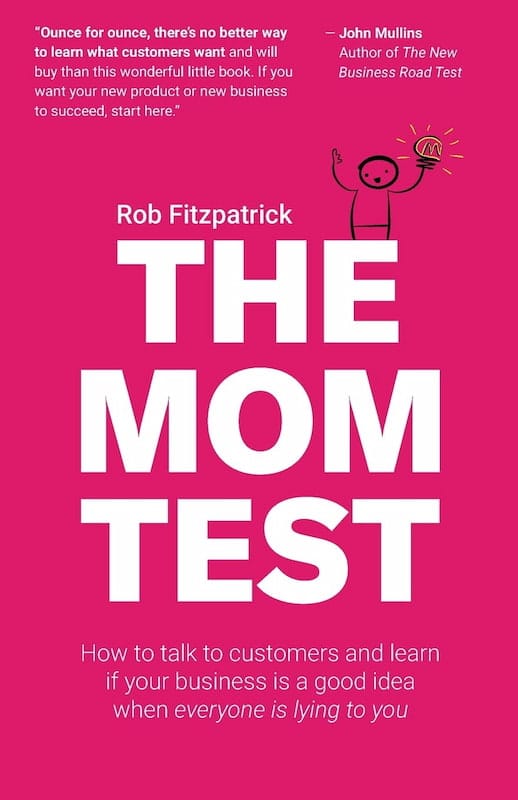
Rule of thumb: You should be terrified of at least one of the questions you’re asking in every conversation.
Ditch the "Is My Idea Good?" Question: Talk to Real Customers Instead.
We all hear it: "Don't ask your mom if your business idea is good! Because she loves you, and she will say that it is!" But here's the problem: asking anyone if your idea is good, even strangers, is a waste of time. Why?
People want to be nice: They might lie a little to avoid hurting your feelings, even if they don't like your idea.
It's the wrong question: You don't need a thumbs-up or down. You need to understand what people actually need and want.
Here's the better approach:
Talk to real customers: Find people who might use your product and ask them about their lives, struggles, and what they already use.
Ask open-ended questions: Don't just ask "yes" or "no" questions. Get them talking and sharing their experiences.
This book will show you how to have these conversations the right way. You'll learn how to:
- Uncover real customer needs and problems.
- Stop wasting time on bad ideas.
- Make smarter decisions about your business.
Invest two hours in this book, and save yourself countless hours (and headaches) down the road.
This is truly one of the best books for business analysts because it teaches you how to ask questions correctly to receive an answer we really need, not the answer that will hide the real problem. It will help you to find the root cause of any need or problem, validate business and feature ideas, and simply do your job well.
5... Not Yet BABOK
You might ask, "Where's BABOK?". I suggest you start with the BABOK study guide first.
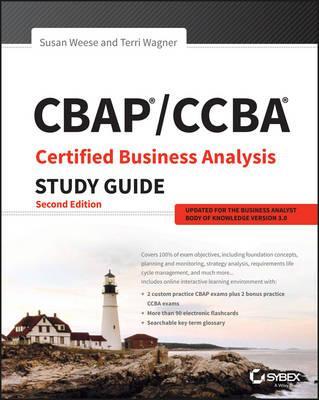
The CBAP / CCBA Certified Business Analysis Study Guide (2nd ed.) by Susan Weese and Terri Wagner is one of the business analyst books designed to prepare BAs for the IIBA certification exams. In other words, it's like BABOK, but with examples and explanations. If BABOK (business analyst body of knowledge) isn't your style, feel free to grab this book. It breaks down existing knowledge and experience and might even provide a couple of new ideas for daily work activities.
However, like BABOK, it covers all knowledge areas, and is pretty complicated. So the less practical experience you have, the less effectively you'll find it. But around 2 years into your career is an excellent time to start (though if you have the energy and motivation, you can start earlier, of course).
Conclusion
In conclusion, when embarking on a journey in business analysis or seeking to enhance your existing knowledge, turning to business analyst books can be invaluable. Despite the abundance of resources such as courses, articles, and webinars, books serve as the cornerstone for consolidating knowledge effectively. They provide a solid foundation and complement to experiences and mentorship sessions, offering practical guidance and insights.
The curated list of five best books for business analysts outlined in this article offers a wealth of information and practical advice for both novice and experienced professionals. From mastering software requirements and crafting compelling user stories to understanding UML diagrams and conducting effective customer interviews, each book addresses specific aspects of the business analysis process.
These books not only help establish a strong foundation for beginners but also assist experienced analysts in filling knowledge gaps and staying abreast of industry best practices. Whether you're just starting your career or looking to advance to the next level, incorporating these books into your learning journey can provide valuable insights and enhance your effectiveness as a business analyst.
Ultimately, investing time in reading and studying these business analysis books can significantly contribute to your growth and success in the field of business analysis. So, whether you're seeking to expand your knowledge base or prepare for certification exams, these it business analyst books serve as indispensable resources to further your professional development and achieve your career goals.
Apart from business analyst books, I also recommend reading articles in this blog, where I outline essential skills for BAs and how to develop them:
Quality Characteristics of Software Requirements
How to Write Software Requirement Specification (SRS) Doc (with example)
How to become a Certified Scrum Product Owner?
Subscribe to receive new articles via email immediately after publication.
Feel free to contact me - by email at iamthebagirl@gmail.com or connect with me on LinkedIn at https://www.linkedin.com/in/nataliiachausova/
